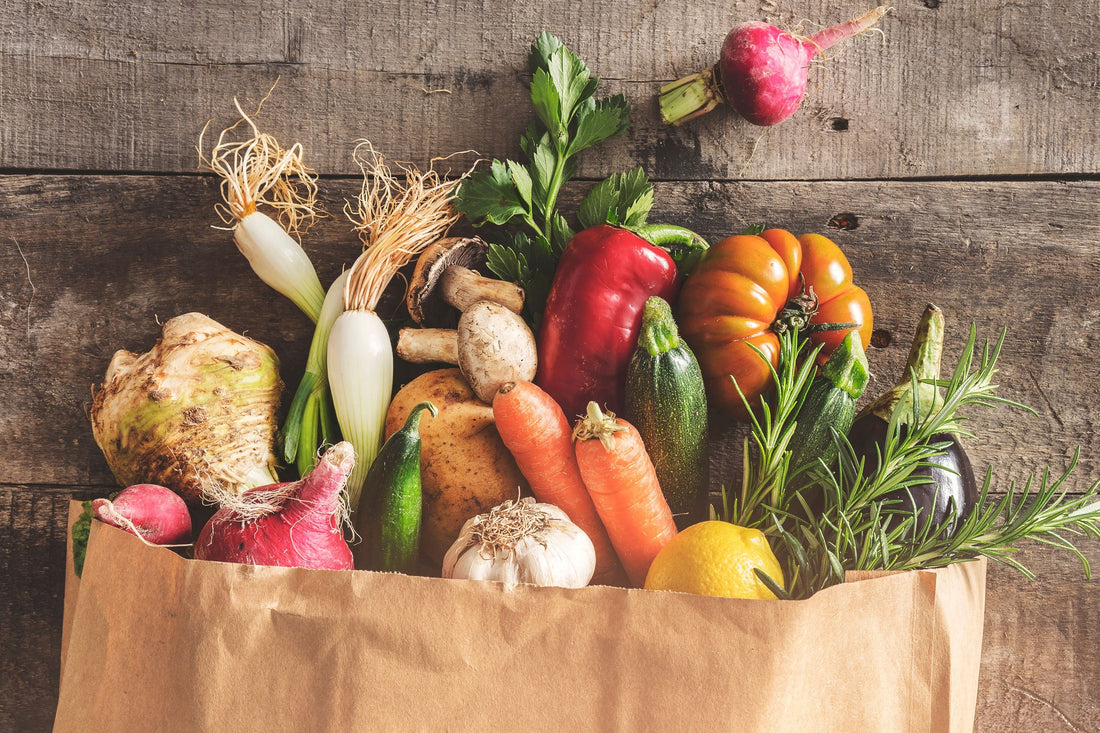The grocery store is a place that can be a great source of health and nutrition, but it can often be a destination that’s filled with confusing choices. What should optimally be a location to find nourishing food in a variety of enjoyable forms, can also be a space that’s jam-packed with junk food.
There are quite a few companies today that manufacture food with only good taste or their own profits in mind. So sifting through what’s available in the store and finding food that does what food should do – which is nourish the body – is sometimes challenging. It’s also a task that can become quite easy and second nature, with just a bit of research.
So what needs to be researched and considered when trying to filter out empty-nutrient foods in the grocery store while selecting ones that will actually energize the body? A few things, including a food’s potential to enrich the body and to not deplete it.
During a trip to the store, it’s essential that a consumer keeps the fact in mind that the body’s cells will be fueled, remain neutral, or damaged by anything that’s ingested. To stay healthy, it’s necessary to know a food’s effect on the body, and to make wise decisions about the things that get consumed.
Eat Plants
Plants offer a range of nutrients to the body, from vitamins and antioxidants to fiber and protein. An individual can obtain all of the nourishment that he or she needs by consuming only plants. Plant-based diets can be the key to lowering the risk of diseases like Type 2 diabetes, high blood pressure, and heart disease.
Research done as part of the Adventist Healthy Study found that people who ate a plant-based diet had a reduced risk of high blood pressure and supports normal blood sugar levels. The American Cancer Society also recommends a plant-based diet.
Buy Organic When It Matters
A plant-only diet is optimal for keeping the body in good health, but it’s crucial that the plants one chooses are not heavily sprayed with dangerous pesticides and herbicides. Buying organic when it counts is a good way to keep these harmful chemicals out of the body.
So when does it actually count? The Environmental Working Group has created a “Dirty Dozen” list of the foods that contain the most pesticide residue. These foods are typically soft-skinned fruits and veggies and leafy greens that are often grown with toxic chemicals and that don’t have any protective layer to keep the poisons out (like the ones that bananas or avocados have).
Shop the Perimeter of the Store
To find plant-based foods that will keep your body healthy, try to shop the perimeter of the grocery store. This is where most markets keep the fresh fruits and vegetables, and where a good amount of the protein and fiber-rich beans, nuts, and seeds are also located.
Look for bulk bins that are filled with these items as well as nutritious and healthy-carb whole grains like oats, brown rice, and quinoa. Sometimes, a store might not have bulk bins with these items on hand, so move deeper into the aisles and look for whole plant foods in packages. Read the labels and pick foods that are as close to nature as possible, with as little processing as you can find.
A stroll through a grocery store often puts a consumer face-to-face with tons of packaged foods, which might be heavily processed or may have questionable ingredients added to them. To make a healthy choice at the grocery store, it’s imperative that a consumer learns to read labels and to recognize marketing techniques that may not have the consumer’s health in mind.
As a rule, pass over any packaged foods that don’t have any protein, fiber, or vitamins in them. Skip foods with artificial colors or flavors, and watch out for buzzwords on packaging (like low-fat, gluten-free, or natural) that might imply health, but don’t necessarily refer to real health inside of the box or bag.
By following these actions, which don’t require a tremendous amount of time or effort, shoppers will be taking a good first-step in choosing food at the grocery store that will promote optimal health.
Sources:
http://www.huffingtonpost.com/carole-bartolotto/plant-based-diet_b_3807973.html
http://www.prevention.com/food/healthy-eating-tips/top-reasons-choose-organic-foods
http://www.ewg.org/

